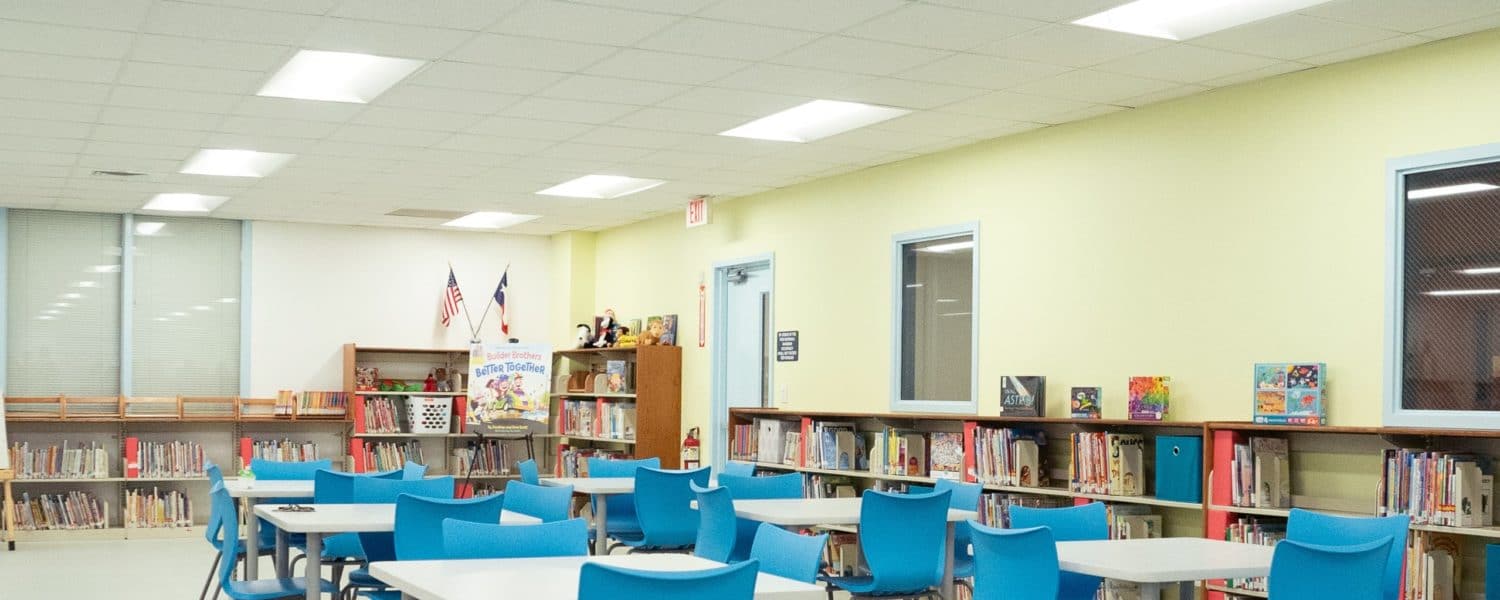By learning more about the advantages that LED lighting can bring to both your school and the students attending, you can make an informed decision for future generations.
LED Lighting and Its Value
When reviewing the use of LED lighting and considering its impact on your facility, you may note that LED has several functional benefits beyond the health of your students and teachers. Administrators work within tight budgets, and they understand that lighting is a cornerstone for optimal classroom performance. Fortunately, the initial investment has become more affordable, and LED lighting can provide up to 75% energy savings over current systems.
The overall lower carbon footprint achieved through the use of LED lighting is also highlighted by their power-use. LEDs use less electricity than other lighting options and don’t require a disposal program often associated with fluorescent bulbs. For schools working to meet ever-higher environmental standards within their operations, LED lighting can be a critical advantage.
Another leading consideration in choosing LED lighting is the ongoing maintenance costs associated with existing light fixtures in your school. Since LEDs have a substantially longer life than fluorescent, maintenance staff can be assigned to other duties instead of replacing or repairing the lighting. For school administrators running multiple facilities with hundreds of rooms, the potential labor and material savings are significant.
Health Benefits of LED Lighting in Schools
So now that you know a little more about the functional benefits LED lighting can bring to your school in terms of environmental performance and cost savings, it’s time to explore more of the health advantages.
- No Harmful Contaminants
One of the foremost reasons many schools are now choosing LED lighting systems is that LED lighting components do not contain any harmful contaminants. Some CFL lighting products contain mercury and PCBs, which according to the EPA, have been proven to damage the health of children and cause long-standing side-effects if exposed.
- Better Quality Light
The quality of light in the classroom is an important element to consider when reviewing lighting systems. Without the highest quality of light in their classroom, students might be unable to see the study material, may find it difficult to concentrate, or have difficulty navigating the school itself. LED technology has been proven to achieve consistent lighting performance compared to alternative options. Oftentimes, glare or flickering associated with legacy lighting can negatively impact students and teachers, causing visual discomfort. Results from visual discomfort include headaches, eyestrain and negative behavior.
- Improvement in Focus
As the understanding of ADHD and other studying-related medical issues grows, we know the importance that is placed on concentration in terms of educational achievement. LED lighting provides light that assists students in building their concentration during classes and helps them focus more effectively on their work in the classroom. With increased concentration comes other educational benefit such as memory recall and full information comprehension. Studies have shown that cooler temperatures (4100K-5000K) can help with concentration on certain tasks and projects.
- More Productive Learning Environment
When a learning environment utilizes LED technology, students can be more productive as the lighting is designed to suit their educational requirements throughout the day. The use of LED technology can give teachers the flexibility to control the color temperature and dimming capabilities for optimal learning environments. A recent study showed that lighting that simulates day-lighting can increase cognitive performance in students and help with adjustments in the students’ circadian rhythms.
This information is courtesy of XtraLight Manufacturing, which has designed, developed, and manufactured superior lighting fixtures since 1986, www.xtralight.com.





